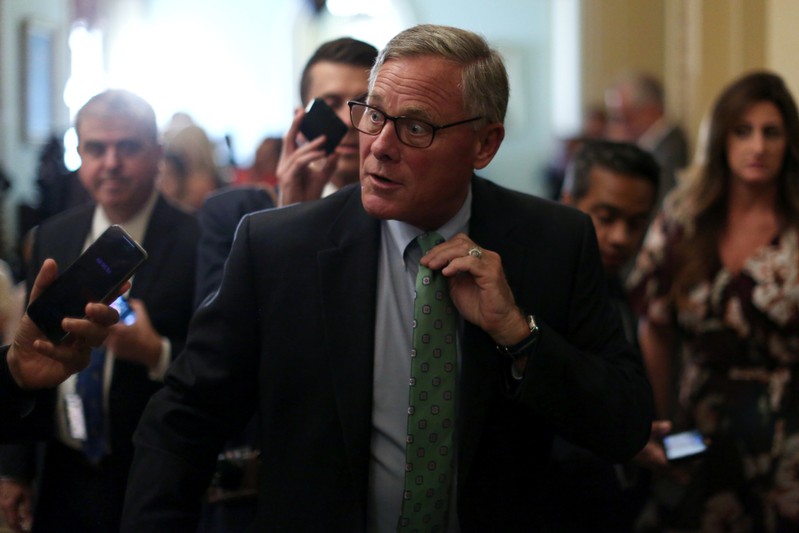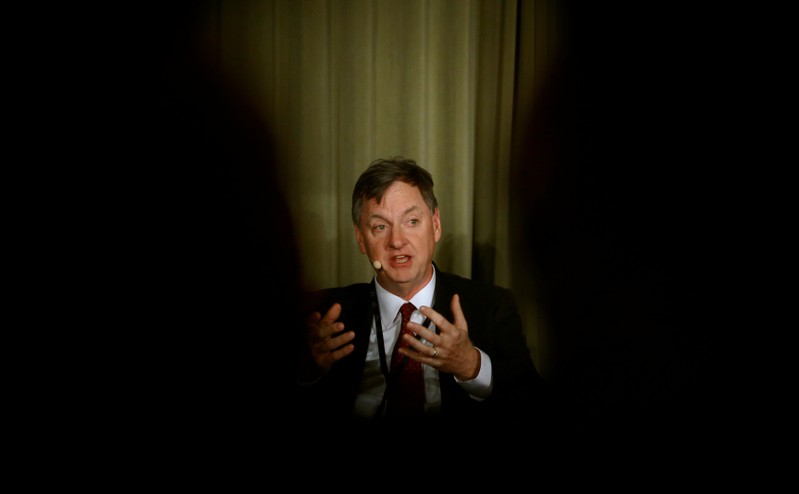
FILE PHOTO: U.S. Senator Richard Burr (R-NC) speaks with reporters after the weekly Senate Republican caucus luncheon at the U.S. Capitol in Washington, U.S., September 10, 2019. REUTERS/Jonathan Ernst
October 8, 2019
By Joseph Menn
(Reuters) – The Senate committee investigating Russian interference in the 2016 U.S. election said on Tuesday that the Kremlin’s best-known propaganda arm increased its activity after that vote, adding to concerns about foreign meddling in the current 2020 campaign.
The Senate Intelligence Committee, which has managed to operate under bipartisan consensus when other congressional panels have not, said in a report that activity by the St. Petersburg-based Internet Research Agency “increased, rather than decreased, after Election Day 2016.”
IRA-linked account activity jumped more than 200% on Instagram and more than 50% on Facebook, Twitter and YouTube, the committee said. The IRA and related entities and people were indicted earlier this year by special counsel Robert Mueller.
The committee, led by Republican Chairman Richard Burr and Democratic Vice Chairman Mark Warner, also concluded that African-Americans had been the group most targeted by Russian influence campaigns that sought to exacerbate domestic tensions and increase the election prospects of President Donald Trump.
The report by the Republican-controlled committee reaffirmed findings by the U.S. intelligence community and Mueller that the Kremlin pursued an influence operation through social media and other means that was aimed at throwing the 2016 U.S. presidential election to Trump over his Democratic challenger, Hillary Clinton.
In doing so, the Senate report contradicted allegations by Trump’s personal attorney Rudolph Giuliani and others that Ukraine, not Russia, colluded with Democrats to undermine Trump’s campaign as well as charges by the White House and Trump allies including Representative Devin Nunes that Russia actually aided Clinton’s candidacy.
The panel recommended that Congress consider new laws requiring disclosure of who pays for election-related online advertising. It also said social media companies, which have come under fire for allowing propaganda to flourish, should share more information about what they find on their platforms.
(Reporting by Joseph Menn in San Francisco, additional reporting by Jonathan Landay in Washington; Editing by Dan Grebler and Cynthia Osterman)

